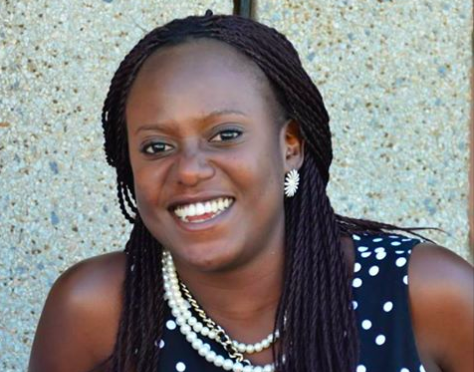Researcher of the Month: Jenala Chipungu

Jenala Chipungu
Our Researcher of the Month for November is Jenala Chipungu, a researcher working with SHARE on the San-Dem project at CIDRZ. Here, she tells us how she got into research and why she thinks WASH is important.
What is your background?
I’m a qualitative researcher. It all started when I began working for CIDRZ. I have a Bachelors degree in Development Studies and Psychology, and I joined CIDRZ soon after my last exams, working on the implementation of HIV programmes. We then got a grant for under five diarrhoea, and part of that was to educate mothers about hygiene behaviours. I didn’t think the traditional methods we use to reach communities were going to work - we wanted a more specific way of doing it. So we started working with the London School of Hygiene and Tropical Medicine, with Val Curtis and Katie Greenland. From there I really felt my passion for qualitative research. I was always asking questions on ‘why?’. If I was told that 50% of kids have diarrhoea, I’d ask ‘why?’, and I realised soon enough that I’m a qualitative researcher and began to build my strengths there! I started an MPH with Liverpool, and since then I’ve been working on qualitative work in various areas – sanitation, HIV, contraceptives, sexual and reproductive health studies.
What made you interested in WASH?
I’d never really thought about WASH before, but when I started on the San-Dem project in 2016 I started reading more about it, and realised there is a huge gap in the communities we are working in, where the water is of poor quality and the behaviours are really poor. There are so many things that need to be targeted – you need to know so much. When we did the formative research for San-Dem, it was a light bulb moment for me – that’s when I became really interested in WASH. There’s so much that hasn’t been done.
What do you enjoy about your work?
One thing I’ve really enjoyed is leading on an MHM project funded by UNICEF – I never thought this would be of interest to me! But I read up about it and began to think more about the challenges people face. It was really interesting planning this study from beginning to end, and it’s also interesting in that MHM doesn’t just include WASH – it’s mental health, and has so many connections to other areas. We developed a MHM toolkit for kids in schools, which has now been adopted by the Ministry of Education and is being disseminated in schools. We also developed guidelines with the MHM Technical Working Group. This was a really interesting project for me as it started very small but ended up quite big.
What do you find most challenging?
The major challenge I find is that people don’t prioritise WASH as much as we do. I think people have become very comfortable in the way that they live, and do not see the direct relationship between poor sanitation and health. They think more about whether they can go to the clinic, do they have food and shelter, as opposed to ‘is my toilet a good toilet?’. There has been no real demand for sanitation as people are unaware of how a poor toilet may lead to diarrhoea, and people don’t prioritise handwashing because it’s not valued as highly as other behaviours. So the biggest challenge for me is making that shift – for people to prioritise handwashing and toilets in their schedule.
How would you like this work to influence policy?
I think our work can have a huge impact on policy. We have so many programmes on sanitation – with funding from the World Bank, African Development Bank, GIZ and others. Most of this is for programmes. The issue with programmes is that it may work or may not work. We have very little evidence around sanitation in Lusaka, so I think the projects we are doing now are valuable in contributing to what already exists and to help understand what works and what doesn’t work, and provide useful information to policymakers. We have also been involved in different groups, including technical working groups at the policymaking level, so we can disseminate results and help contribute to the decisions being made.
If there’s one thing you could change about your work, what would it be?
Specifically in Zambia, I think there’s a lot of work on sanitation being done, but it’s not being well coordinated. For me, I think we should have a way to coordinate sanitation. Of course people have various objectives, but I think we need to think holistically as a team to focus on one area first before we scatter our efforts to different types of things. I’d like to see a coordinating body for sanitation – we now have a relatively new Ministry of Water, which is great, it’s a starting point! I’d like to see us use this platform to come together and speak to objectives that interest us all.
What advice would you give to someone starting out in this area?
It’s a good decision as there’s a lot that can be done, and that needs to be done. The advice I’d give is to come up with interesting ways to approach behaviour change – I’d encourage that person to think outside the box and find innovative ways to target behaviour change, learning from what has already been done but always thinking what can we do better.
SHARE would like to thank Jasmine Burton for conducting the interview.
